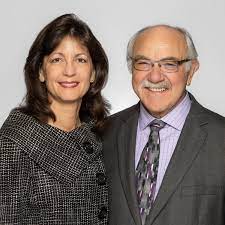 Speaking at a Human Capital Analytics Conference in New York, the chief learning officer for a large telecom made an interesting comment about her relationship with the CFO: “Two years ago, I usually tried to avoid meeting with our CFO. I didn’t want any involvement with that part of the organization. Now, I consider the CFO a colleague, an ally and a partner as we drive value from learning and talent development.”
Speaking at a Human Capital Analytics Conference in New York, the chief learning officer for a large telecom made an interesting comment about her relationship with the CFO: “Two years ago, I usually tried to avoid meeting with our CFO. I didn’t want any involvement with that part of the organization. Now, I consider the CFO a colleague, an ally and a partner as we drive value from learning and talent development.”
The relationship with the finance and accounting function — and the CFO in particular — can be contentious. In most organizations, the CFO is gaining influence and is now more involved in learning and development than any time in the past.
The CFO is one of the most critical jobs in an organization; that person will steer the organization properly through economic cycles. Gartner Research shows the number of HR executives who now report directly to the CFO has been increasing and now stands at almost 20 percent. In many organizations, the CFO is often one of the contenders to replace the CEO.
The CEO looks to the CFO to manage the organization’s financial performance. Profits can be enhanced by increasing revenue, decreasing costs or both. The CFO has limited influence on revenue, but can increase profits by reducing costs. With that in mind, CFOs are relentless in making sure the organization is efficient and lean, particularly in times of uncertainty.
There are often two extremes when working with financial leaders: friend or foe. Some CLOs see the CFO as being increasingly involved and unwelcome, requiring approvals for expenditures that previously did not require approval. For example, it is almost impossible to purchase a learning management system without CFO approval. In fact, the CFO usually has approval for the budget before the CEO approves it.
In downturns, CFOs focus on cost reductions for functions perceived as a cost and not as an investment. For example, the CFO for a Canadian aircraft company sent a memo to all employees expressing a need to control costs. To conserve cash to develop two new aircraft models, the CFO asked to suspend all training, consulting, off-site meetings and recruitment — functions perceived as costs, not as investments.
It is easy to see the CFO as a foe and not a friend. But, not so fast. CFOs haven’t asked for the additional responsibility to measure success for other functions.
For more than 100 years, CFOs have been using ROI for capital expenditures. Now the CEO would like to see the same approach for noncapital expenditures, such as learning and talent development. Some CFOs are uncomfortable with this responsibility. One told us, “They already hate us because of the budget process, now they are going to hate us even more when they perceive us as measuring their performance.” To keep the relationship friendly:
- Consider them to be metrics experts. If you are having difficulty securing additional funds for metrics, analytics and measurement, you may have a sympathetic ear because the CFO understands the power of analytics.
- Show them how you tackle major projects. For example, show the results for a major leadership development program at the impact level. CFOs may have no idea how to connect leadership development to a financial ROI, but chances are, you do.
- Involve them, don’t avoid them. Bring them into major projects you are tackling, addressing the challenges and issues you are facing. Discuss the projects you want to evaluate.
- Have them review program costs that would be included in an ROI analysis.
- Secure their help developing an executive-friendly learning scorecard that moves the accountability reporting beyond inputs, reaction and learning to include data on application, impact and ROI.
- Routinely review progress with the CFO team, even if you are not reporting to them through HR.
You may be surprised with the reaction. You’ll find a helpful team who appreciates your efforts to show business value.
The telecom CLO embarked on a program to measure the impact and ROI for major projects and connect programs to the business, using many of the aforementioned steps. She involved the CFO’s team, and it made all the difference in the relationship and the support she received.
Jack J. Phillips is the chairman and Patti P. Phillips is president and CEO of the ROI Institute. Comment below, or email editor@CLOmedia.com.















